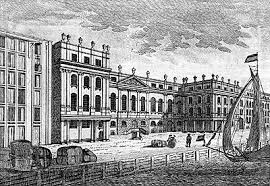chandelier cambridge dictionary

Full text of "Art in Theory 1900-1990" Health Benefits to Cost 7 Percent More Harvard continues to contend with rising medical bills. Courtesy of Harvard Magazine Dining-hall Workers’ Strike Begins The union demands a year-round living wage and affordable health insurance. Courtesy of UNITE HERE Local 26 Dining Hall Workers Move Toward Strike Next Week Wages, health benefits, and year-round work are at issue. Photograph courtesy of Ebru Erbay Lab Good Fat in a White Hat A beneficial fat rare in Western diets appears to fight cardiovascular disease. Illustration by Wesley Bedrosian Evolution shaped humans to rest—and to run only when absolutely necessary. Image courtesy of Mark Skylar-Scott Printing in Free Space A new kind of 3-D printer forms wires in midair. The New Republican Mavericks of Cambridge After the Harvard Republican Club publicly repudiated Donald Trump, students reflect on the group’s future.

Courtesy of Bruner/Cott& Associates, Inc. New Look for Lavietes A mid-course change in Allston yields renovated basketball facilities. Happy New (Academic) Year Harvard bestirs itself for the fall term. Last week, three Harvard affiliates were awarded the National Humanities Medal and eight were long-listed for the National Book Awards. Harvard Reforms Overseer Elections Moves to online voting—but raises threshold to petition for a place on the ballot. A private San Francisco middle school and high school nurture a passion for numbers. Learn how New England’s iconic berries are cultivated at this annual event. Photograph courtesy of the National Park Service The Saugus Iron Works highlights early U.S. industrial history Children and adults alike are drawn to this eclectic array of firefighting artifacts. Courtesy of Houghton Library/Harvard University “Beyond Words”: Beauty and History Converge at Houghton

A new exhibit highlights how medieval monasticism’s “cult of the book” transmitted beauty and knowledge to the modern world.
chandelier cso fait maison Photograph by Sean Locke/Stocksy
chandelier wymowa The Human Side of Cancer Treatment
acapulco eforie nord restaurant Although I respected my oncologists for the important role they played in my cancer treatment, I found the wide and varied “turf” that exceptional nurses cover astounding. How a school system's finances deteriorated Courtesy of Harvard University Archives The Harvard Advocate turns 150. Image courtesy of Judith Brodsky From the beginning, artist and advocate Judith Brodsky felt “pulls in different directions.”

Photograph by Kit Wu/The Harvard Crimson Football: Harvard 31, Georgetown 17 Harvard extends its Stadium night-game unbeaten streak to 14. Photograph by Harvard Athletic Communications Football: Harvard 32, Brown 22 Harvard toughs out “a typical Brown game.” Football: Harvard 51, Rhode Island 21 A fine start to Harvard’s 143rd football season Photograph by Christopher S. Johnson A distinctive Harvard Magazine voice remembered Illustration by Mark Steele From the pages of the Harvard Alumni Bulletin and Harvard Magazine Cryptic Puzzle: “Soccer Club” Cryptic Puzzle: “To Russia With Love” Harvard Puzzles by John de Cuevas Enter a word or phrase Choose a course format > buy and sell in Kitchener / Waterloo Get an alert with the newest ads for buy and sell in Kitchener / Waterloo. buy and sellKitchener / Waterloo.NOTES ON ISSUE 6: GLOSSARY Charles Darnay was established in England as a higher teacher

of the French language who was conversant with French literature. he would have been a Professor; in that age, he was a Tutor. In the 18th century, modern languages like French were not officially taught at the universities of Oxford and Cambridge, where a gentleman’s education traditionally required instruction in ancient languages – Latin and Greek. King George I established professorships of Modern History and Modern Languages at both Oxford and Cambridge as early as 1724, but these professors were notinstead, they were responsible for hiring subordinate instructors who could teach language skills. Modern languages were considered a practical acquirement for students who intended to enter certain professions – the diplomatic service, for example. Instruction in modern languages at the chief English universities was thus a kind of freelance and ad hoc affair, and Charles Darnay (as a teacher of French language and literature)

would be – despite all apparent merit – merely a tutor. Such masters were not at that time easily found; Princes that had been, and Kings that were to be, were not yet of the Teacher class, and no ruined nobility had dropped out of Tellson’s ledgers, to turn cooks and carpenters. King Louis-Phillippe, who reigned in France after the July Revolution of 1830, was the son of the Duc d’Orléans; during the Reign of Terror, he found refuge in Switzerland and taught mathematics (Sanders 98). reference to him in The French Revolution: “Brave young Orléans Egalité [the Duc d’Orléans became known as Egalité (“Equality”) during the French Revolution], deprived of all, only not deprived of himself, is gone to Coire in the Grisons, under the name of Corby, to teach Mathematics” (681). Many aristocrats emigrated during the Revolution and lived in reduced circumstances abroad. A certain portion of his time was passed at Cambridge, where he read

with undergraduates as a sort of tolerated smuggler who drove a contraband trade in European languages, instead of conveying Greek and Latin through the Custom-house. Darnay’s “trade” in European languages is “contraband” because the traditional curriculum at Cambridge was concerned with the ancient languages, Latin and Greek. Instruction in modern languages was available from instructors who worked on a part-time, ad hoc basis. For example, in the 1760s, French instruction was available at a coffee house next to Emmanuel College in CambridgeDarnay would have held such a position – associated with the university, but not in an official capacity. The actual “Custom House,” in London, was located on the Thames, and dealt with imported goods of a more tangible kind. Harrison’s New and Universal History, Description and Survey of … London (1776) gives this illustration of the Custom House, together with the following account of its condition, appearance, and

function in the late 18th century: …making a grand clearance among Mr. Stryver’s papers before the setting in of the long vacation. The clearance was effectedthe Stryver arrears were handsomely fetched up; rid of, until November should come with its fogs atmospheric and fogs legal, and bring grist to the mill again. The annual “long vacation,” when the legal activity of the courts was suspended, ran from July to October; Michaelmas Term – the first term after the vacation – began at the beginning of November (Ford and Monod xx). Sydney was none the livelier and none the soberer for so much application. It had taken a deal of extra wet-toweling to pull him through the night; a correspondingly extra quantity of wine had precededand he was in a very damaged condition, as he now pulled his turban off and threw it into the basin in which he had steeped it at intervals for the last six hours. Carton’s remedy – the application of a wet towel

– is still practiced today. Such a bandage helps constrict throbbing blood vessels (Camlot, Treating a Hangover). “Find out some respectable woman with a little property – somebody in the landlady way, or lodging-letting way – and marry her, against a rainy day.” A landlady, or a lady in the “lodging-letting way,” would be a woman possessed of some property and a steady income. In the 18th century, as in Dickens’ time, the legal position of women was limited, and a woman’s property became her husband’s upon marriage. A woman’s legal circumstances are detailed in the Dictionary of Daily Wants (1859) under Thus, if Carton were to marry a landlady, he would be marrying a certain amount of regularly-remunerative property, together with a person capable of managing it without assistance. Stryver, well apprized of the laws concerning marital property, takes a savvy view of landladies. Mr. Stryver … resolved to make [Lucie’s] happiness known

to her before he left town for the Long Vacation…. [T]hey could then arrange at their leisure whether he should give her his hand a week or two before Michaelmas Term, or in the little Christmas vacation between it and Hilary. Mr. Stryver, sure of the success of his suit, plans to woo and win Lucie before leaving, in July, for the Long Vacation. He anticipates setting a wedding date for late October (a week or two before the beginning of Michaelmas Term in November), or in the “little Christmas vacation” between late November (the end of Michaelmas Term) and mid-January (the beginning of Hilary Term) (Ford and Monod xx). He called himself for the plaintiff, there was no getting over his evidence, the counsel for the defendant threw up his brief, and the jury did not even turn to consider. After trying it, Stryver C.J. was satisfied that no plainer case could be. In the imaginary trial to which Stryver subjects his cause (the wooing of Lucie

Manette), he assumes every part in turn. As plaintiff (a plaintiff is “the party who brings a suit into a court of law; to defendant” [Oxford English Dictionary]), Stryver puts his case so much to his own satisfaction that his imaginary opponent throws up his prepared statement of the facts (his “brief”) in dismay; (normally consisting, in England, of 12 people for civil or criminal trialsdoes not even bother to deliberate concerning the outcome ofand the chief justice (in the person of Stryver himself, “C.J.”) Accordingly, Mr. Stryver inaugurated the Long Vacation with a formal proposal to take Miss Manette to Vauxhall Gardens; Mr. Stryver hopes to woo Lucie by taking her to one or another of two publicVauxhall Gardens, extremely popular in the 18th century, remained open until 1859 (Baedeker 382) – the very year A Tale of Two CitiesHarrison’s New and Universal History, Description and SurveyLondon (1776) gives us a description of the resort’s attractions

at about the time of Stryver’s proposed visit: This illustration, from Thornton’s New, Complete, and Universal History ... of London (1784), gives us a “View of Vaux-Hall Gardens” as it appeared inThe obelisk – at the end of an avenue of trees at the left of the illustration – is visible in the distance; also, on the right, we see the dome of the outdoor orchestra, which plays to a group of ladies and Ranelagh, in Chelsea (west of London proper, on the north bank of the Thames), was a popular resort during the reigns of George II and Thornton’s New, Complete, and Universal History … of London (1784) describes the resort as follows: Thornton’s History furnishes this illustration of Ranelagh Gardens, which includes the amphitheatre described above. …and bit the feather of a pen. In the 18th century, the pens generally used were quill pens, which were madeBy the time Dickens was writing A Tale of Two Cities,

quills had been mostly superseded by steel pens (described by the Dictionary of Daily Wants [1859] as procurable “at the lowest possible price” and requiring “little or no care” [768]), but some people stillThe Dictionary of Daily Wants gives the following instructions for the preparation of quills: Mr. Lorry’s pen, the feather of which he bites under Stryver’s interrogation, would have been prepared in this fashion.Mr. Stryver … carried his delicacy into Devonshire… Mr. Stryver’s delicacy goes to a county in the southwest of England: Devonshire is bordered by the Bristol Channel to the north and the English Channel to the south, lying between the counties of Cornwall (to the southwest) and Somersetshire and Dorsetshire (to the east). …and found Lucie at her work, alone. Lucie’s work consists of sewing or needlepoint; the word itself (“work”) is a shortened or generalized form for various kinds of sewing, such as “drawn-work,